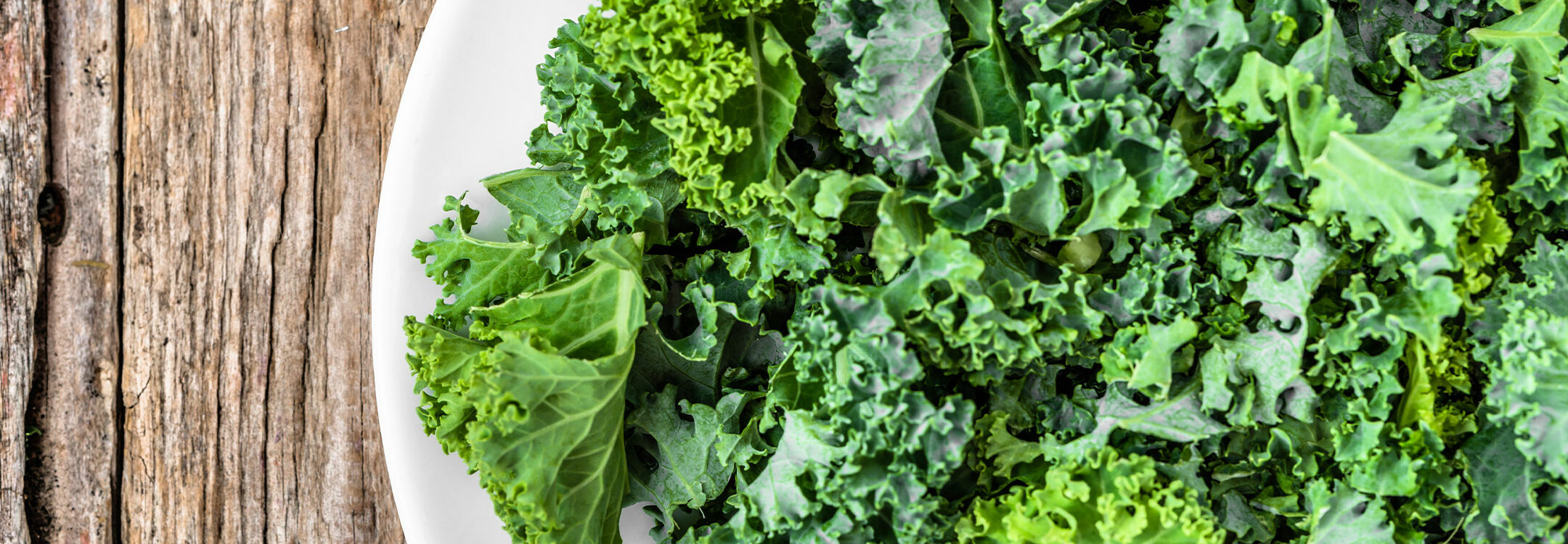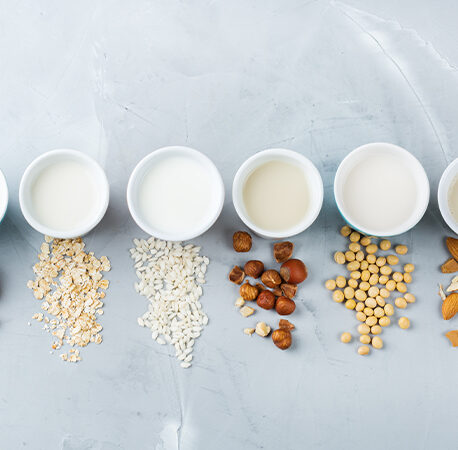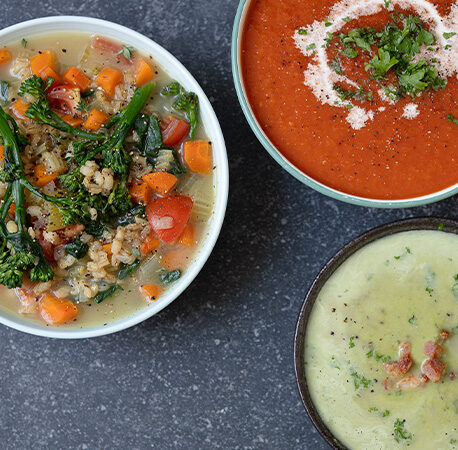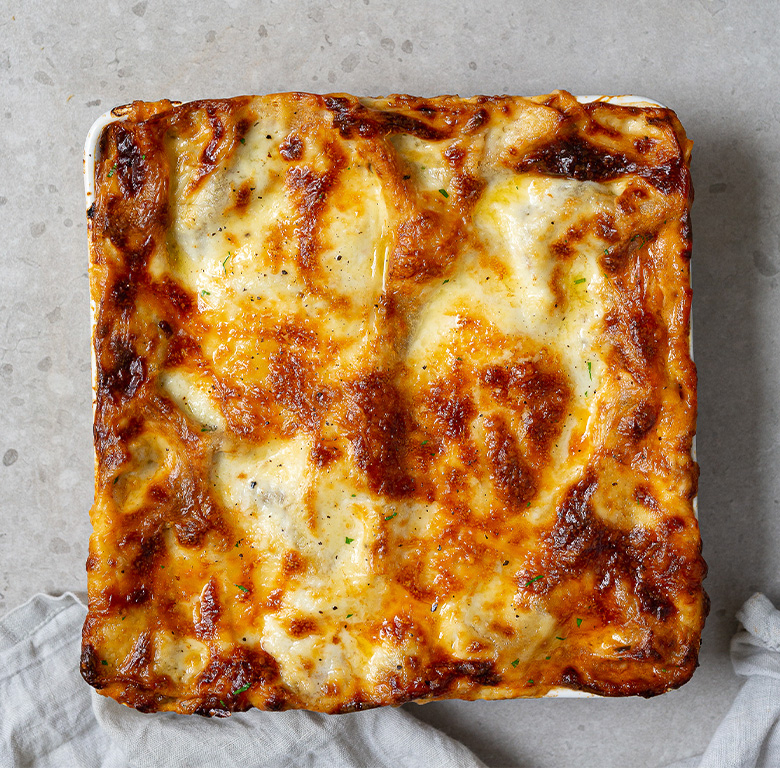All the benefits:
- Kale is a nutrition superstar, thanks to its high amounts of vitamins A, B6, C
and K, as well as important minerals like calcium, potassium, copper, iron and manganese. - It is rich in antioxidants and packed with fibre, and has a good balance of omega-3 and omega-6 fatty acids.
- Including kale as a regular part of your diet has potential benefits for heart health, bone health, weight management, digestion, cholesterol levels, eye health, cancer prevention, skin health and blood sugar management.
Did you know?
- 100g of kale provides 254mg of calcium – over twice the amount you’ll get from 100ml of cow’s milk!
History bites:
- Dating back over 2,000 years, kale originated in the eastern Mediterranean and Asia.
- During the Middle Ages, kale was one of the most widely eaten green vegetables in Europe and was often known as “peasant’s cabbage”.
- The modern world, kale, comes from a Scottish name for the plant, kail.
Test kitchen tips:
- Kale can be sautéed, stir-fried, added to gratins, whizzed into smoothies, cooked into scrambled eggs or omelettes, used as a base for salads, or wilted into soups, stews or sauces.
- If you manage to get your hands on baby kale, you can eat the stalks, too. With fully grown kale, it`s best to tear off the leaves and discard the stalks, as they become tough and fibrous.






You have to be signed in to comment this post.